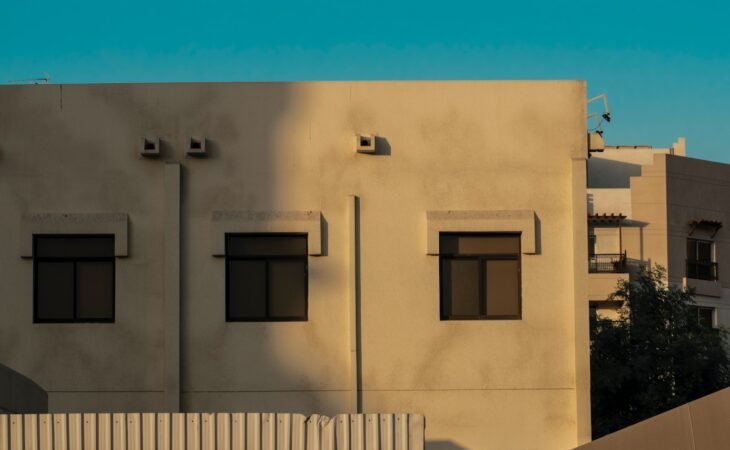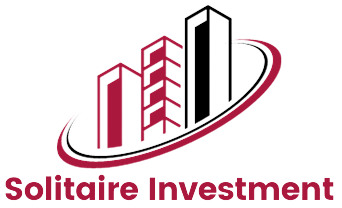
In the ever-evolving landscape of Dubai’s real estate sector, the secondary market plays a pivotal role, influencing property transactions and investment decisions. Whether you’re a prospective buyer, seller, or simply an enthusiast of the Dubai property market, grasping the concept and dynamics of the secondary market is essential.
In this blog post, we will embark on a journey through the intricacies of the secondary market in Dubai real estate. We will delve into its definition, explore the factors that drive its growth, unveil its advantages and challenges, analyze current market trends, and even provide real-life case studies to illustrate its significance. By the end of this exploration, you’ll have a comprehensive understanding of how the secondary market operates and how it can impact your real estate endeavors in this vibrant city. So, let’s begin our journey into the heart of Dubai’s secondary real estate market.
The secondary market, often referred to as the “resale market,” is a critical component of Dubai’s real estate landscape. It stands in contrast to the primary market, where properties are sold directly by developers. In the secondary market, properties that have already been purchased and owned by individuals or entities are resold to new buyers.
The secondary market encompasses a wide range of property types, catering to diverse needs and preferences. Common property types in the secondary market include:
Several factors contribute to the vibrancy of Dubai’s secondary real estate market:
Understanding these factors can help buyers and sellers navigate the dynamics of the secondary market effectively. Whether you’re looking to make an investment, find your dream home, or divest of a property asset, being aware of the market drivers is crucial.
Participating in the secondary market offers several advantages for both buyers and sellers:
While the secondary market offers numerous benefits, it is essential to be aware of its challenges and considerations to make informed decisions when buying or selling properties. In the next section, we will explore these challenges in detail.
The secondary market in Dubai’s real estate sector, like any other market, presents its set of challenges and considerations for both buyers and sellers:
Property Condition: Properties in the secondary market may vary in terms of condition and maintenance. Buyers should conduct thorough inspections to ensure the property meets their expectations.
Legal Compliance: Sellers must ensure that their properties adhere to all legal requirements and regulations, including title deeds, permits, and compliance with building codes.
Market Volatility: Market conditions can fluctuate, affecting property prices. Sellers may need to adjust their pricing strategies to align with current market trends.
Property History: Buyers should research the history of the property, including previous sales, maintenance records, and any potential legal disputes.
Financing: Buyers may need to secure financing for their property purchase, which involves considerations such as mortgage rates, down payments, and eligibility criteria.
Transaction Costs: Both buyers and sellers should factor in transaction costs, including real estate agent fees, property transfer fees, and registration charges.
Market Knowledge: It’s crucial for both buyers and sellers to stay informed about market trends, regulations, and legal procedures to navigate the secondary market successfully.
While these challenges exist, they can be effectively managed with proper research, due diligence, and guidance from experienced real estate professionals. Dubai’s secondary market continues to offer opportunities for those seeking to buy or sell properties in this thriving metropolis.
The secondary market in Dubai’s real estate sector is dynamic and continually evolving. Understanding current market trends can provide valuable insights for buyers and sellers:
Future Outlook:
Staying informed about these trends and outlook can help buyers and sellers make informed decisions regarding property transactions in Dubai’s secondary market. Whether you’re a first-time buyer, a seasoned investor, or a seller looking to maximize your property’s value, understanding the market’s pulse is key to success.
To illustrate the significance of the secondary market, let’s explore a couple of real-life case studies of successful transactions:
Case Study 1: Upgrading to Luxury Mr. Ahmed, a Dubai resident, decided it was time to upgrade his lifestyle by moving into a more luxurious property. He owned a two-bedroom apartment in the Dubai Marina area, which had witnessed significant appreciation over the years. After consulting with a real estate agent, Mr. Ahmed listed his apartment in the secondary market.
Within a few weeks, a family looking to upgrade from their current residence expressed interest in Mr. Ahmed’s property. They were attracted to the upscale amenities and prime location of the apartment. After negotiations, a deal was struck, and Mr. Ahmed sold his apartment at a favorable price.
With the proceeds from the sale, Mr. Ahmed was able to purchase a spacious penthouse in a prestigious development. This case study highlights how the secondary market allows property owners to unlock value and upgrade their living standards.
Case Study 2: Investor’s Opportunity Ms. Sarah, an international investor, had been eyeing Dubai’s real estate market for its growth potential. She decided to enter the market by purchasing an off-plan property in a newly launched development. However, as the project approached completion, she received multiple offers from other investors interested in acquiring the property before it was officially handed over.
Recognizing an opportunity for a profitable resale, Ms. Sarah listed the property in the secondary market at a price higher than her initial investment. Due to the property’s prime location and market demand, she received several competitive offers. After careful consideration, she accepted an offer that provided a substantial return on her investment.
These case studies exemplify the versatility and profitability of Dubai’s secondary real estate market. Whether you’re looking to upgrade your lifestyle or capitalize on investment opportunities, the secondary market offers a platform for achieving your real estate goals.
The secondary market in Dubai’s real estate sector is a dynamic and essential component of the city’s property landscape. It provides a platform for property owners to unlock value, for investors to capitalize on opportunities, and for buyers to find their dream homes in established communities.
Understanding the factors driving the secondary market, its advantages and challenges, and staying informed about market trends and outlook is crucial for making informed property decisions. With Expo 2020 on the horizon and ongoing regulatory changes, Dubai’s secondary market continues to offer exciting possibilities for those looking to participate in this thriving market.
Whether you’re a seller seeking to maximize returns, a buyer searching for the perfect property, or an investor looking for profitable opportunities, the secondary market in Dubai invites you to explore its limitless potential. It’s a market where the past meets the present, and where property aspirations become a reality.
Stay tuned for more in-depth insights into Dubai’s real estate sector, and keep exploring the diverse opportunities that the secondary market has to offer. Your next real estate venture in Dubai may be just a transaction away in this dynamic marketplace.
Copyright 2023 © Solitaire Investment - All Rights Reserved.

